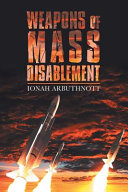Marion Titterton
"Ionah is no stranger to war and the life of an exile. Born and brought up in Rhodesia, she lived through fifteen years, including seven years of married life on a farm, beset by civil war. Her husband was more out on bush patrol than he was at home, while Ionah, a dairy farm consultant, had to travel round the country with an Uzi gun by her side in case of ambush, and the windows of their farmhouse were covered with anti-grenade screens. At independence, in the new Zimbabwe, she gained a doctorate in animal science and joined the local university as a lecturer and researcher while assisting her husband in running their farm. But after a few years, Zimbabwe descended into chaos, and they were forced to leave their farm and country and move to New Zealand. Then they moved to Australia. They are now happily settled in the beautiful state of Tasmania.
Ionah has always felt empathy for the Jewish people, who were forced into exile for two thousand years, suffering great persecution, the worst being the Holocaust in the Second World War. She understands how much it means to have their homeland, Israel, returned to them and why they fight so fiercely and effectively against constant attacks by hostile neighbours and terrorists.
?I?ve met Israelis and worked on research projects with them, and I know how much they wish for peace with their neighbours,? she says, ?but it?s not reciprocated, and the threat of war always hangs over them. I found myself wondering, ?What would it take to prevent war and ensure a lasting peace???
From that was born her idea for the novel Weapons of Mass Disablement. The politics of the Middle East are very complex but fascinating, and it took a great deal of research and reading to ensure the context of the plot was as authentic as possible. The weapons of disablement, while science fiction now, are based on technology that may well become reality in the not-too-distant future."

